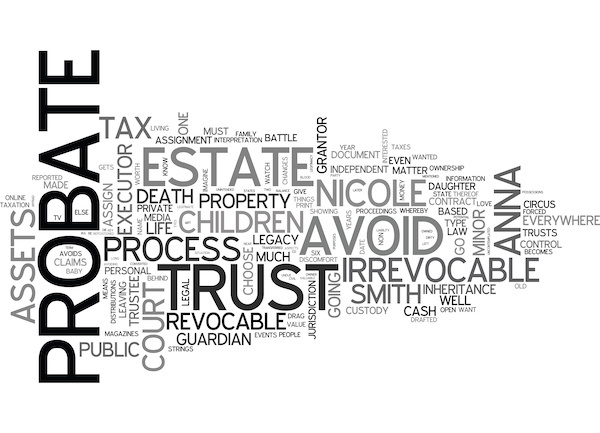Pay Attention To Your Non Probate Assets

In presentations regarding essential actions individuals should take regarding inheritance, emphasis is usually placed on drafting a Will. This leaves unanswered what happens to assets that do not pass by Will – so called non probate assets. The distinction can be critical. In fact, for many, probably most, many more assets pass outside the Will than otherwise.
Non probate assets include jointly titled bank accounts and investment accounts, many jointly titled real estate properties, including residences and investment properties assuming they were titled as joint tenants with right of survivorship or, a category reserved for married persons – tenants by the entireties. If jointly titled real estate passes by Will this would be if it was titled as tenants in common.
Most retirement accounts – IRA’s, 401(k)’s, 403(b)’s and others pass by beneficiary designation and, if the designated beneficiary is not the decedent’s estate (most are not), then not by Will. So, they are usually non probate. This is not all. Life insurance passes by beneficiary so, again, if the estate is not the beneficiary of the life insurance, then the proceeds of life insurance, when received are non probate assets.
Bank and investment accounts that are designated TOD (transfer on death) and POD (payable on death) are also non probate and do not pass by Will. Property that passes directly to trust beneficiaries is also non probate.
Why the distinction between probate (property that passes by Will) and non probate (property that passes outside the Will) is important. To illustrate reasons why it is important to know the difference between probate (those that pass by Will) and non probate (those that do not) I can repeat an actual experience. While shopping in a big box store some years back I was approached by a sales person who had a problem of his own. Knowing my background, he asked a question. The man (I’ll call him “Jim”) stated his father had promised him 50% of his estate when his father died. Dad had remarried. After father’s death Jim received a check for a modest amount. I believe it was about $6,000. Jim knew his father’s assets were much larger and believed his father actually wanted to leave him half of this estate. He could not understand the amount of the check. I explained it is quite possible this can happen and this is why.
When father remarried, he likely retitled his house with his spouse as tenants by the entireties – non probate. He likely set up his bank accounts as jointly titled with his spouse. He would have named his new spouse as beneficiary of his life insurance and of his retirement accounts. He still could have drafted his Will while keeping his promise to leave his probate assets 50% to Jim and 50% to his spouse and $6,000 went to Jim. What asset do most property owners keep in their name alone? Often it is their car. So, it was quite possible the only asset that passed 50% to Jim was half the value of a used automobile. This gives a vivid example of why the probate vs. non probate distinction is important. Parents should also keep this idea in mind when jointly titling bank and investment accounts jointly with one child and not the others. The account goes to the survivor to the exclusion of everyone else.
Non probate does not mean non-taxable. There is a fiction that non probate property is non-taxable. This is not true. Even if the property is received due to joint titling or as a trust beneficiary, it is still subject to Pennsylvania Inheritance Tax.
In some cases, some non probate property is not subject to Pennsylvania Inheritance Tax but this is not because it is non probate but rather for other reasons. For instance when non probate property passes to a spouse spouses are “taxed” at zero percent so the jointly titled residence or bank or investment account inherited by a spouse does not result in Pennsylvania Inheritance Tax. Also, life insurance proceeds are non-taxable but this is not because they are considered non probate but because Pennsylvania decided not to tax life insurance proceeds.
I am sometimes asked by clients or potential clients whether, if they placed their assets in a revocable living trust, their beneficiaries would be exempt from Pennsylvania Inheritance Tax. They are not. This information is specific to Pennsylvania estates. If the decedent died as resident of another state, then information must be consulted from an elder law or estates attorney in that state.
About the Author Janet Colliton
Esquire, Colliton Law Associates, P.C. Janet Colliton has practiced law for over 38 years, 37 of them in Chester County, Pennsylvania, a suburb of Philadelphia. Her practice, Colliton Law Associates, PC, is limited to elder law, Medicaid, including advice, applications and appeals, and other benefits planning including Veterans benefits, life care and special needs planning, guardianships, retirement, and estate planning and administration.
